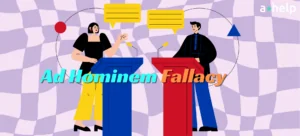In the annals of history, few figures have cast as long a shadow over the realms of politics, philosophy, and rhetoric as Edmund Burke. An Irish statesman, author, orator, and political theorist, Burke’s influence permeates through the fabric of modern conservative thought and the broader philosophical dialogue of the Enlightenment. His eloquence in speech and pen has left a trove of wisdom, encapsulated in quotes that continue to resonate with timeless relevance. This exploration delves into the essence of Burke’s thoughts, reflecting the depth and breadth of his extraordinary mind.

✅ AI Essay Writer ✅ AI Detector ✅ Plagchecker ✅ Paraphraser
✅ Summarizer ✅ Citation Generator
Edmund Burke: The Man and His Beliefs
Born in Dublin in 1729, Burke’s intellectual journey led him to become one of the leading figures in 18th-century Western philosophy. His career in the British Parliament as a member of the Whig party was marked by a profound understanding of the political and social issues of his time. Burke’s philosophy was a complex tapestry, woven with threads of conservatism, liberalism, and a deep-seated respect for tradition and order. He championed the cause of liberty, albeit tempered with social responsibility, and was a vocal critic of the French Revolution, foreseeing the chaos and tyranny it would unleash.
Central to Burke’s beliefs was the idea that society was a contract between the past, present, and future generations. This perspective underlined his advocacy for gradual, reformist policies, as opposed to abrupt, radical changes. His views on governance were marked by a disdain for tyranny and an emphasis on moral virtues in leadership. It is within this rich context of Burke’s philosophical and political beliefs that his quotes find their full meaning.
Collection of Quotes by Edmund Burke
“The only thing necessary for the triumph of evil is for good men to do nothing.”
This quote, often attributed to Burke, encapsulates his deep-seated belief in the moral responsibility of individuals in shaping society. For Burke, liberty was not just a given right but a collective endeavor requiring active engagement and vigilance. He saw the inaction of virtuous individuals as a silent enabler of injustice and tyranny. In this light, the quote is not only a call to action but also a philosophical stance on the dynamic interplay between individual morality and societal well-being. It reflects his view that the maintenance of freedom and justice is a continuous effort, demanding participation and courage from each member of society.
“Government is a contrivance of human wisdom to provide for human wants.”
In this statement, Burke provides a nuanced understanding of the role of government. He views it as a human creation, an instrument devised through collective wisdom, with the primary purpose of addressing the needs and aspirations of the populace. This perspective is rooted in his belief that political institutions should evolve organically, reflecting the traditions and values of the people they serve. Burke’s idea of government contrasts sharply with autocratic or radically revolutionary systems, advocating instead for a governance model that is responsive, responsible, and grounded in the historical and social context of its people.
“A state without the means of some change is without the means of its conservation.”
Burke’s advocacy for prudent, incremental change is at the heart of this quote. He recognized change as an inevitable and necessary aspect of any thriving society. However, his endorsement of change was not unconditional; he believed in reform that respects and builds upon the foundations of existing institutions and traditions. This quote reflects his understanding that societal progress and the conservation of core values are not mutually exclusive but are, in fact, interdependent. It underscores his view that a society which rigidly resists change risks obsolescence and decay, while one that changes too rapidly risks losing its identity and stability.
“Justice is itself the great standing policy of civil society; and any eminent departure from it, under any circumstances, lies under the suspicion of being no policy at all.”
Burke’s emphasis on justice as the cornerstone of civil society is critical to understanding his political philosophy. He saw justice not merely as a legal principle but as the fundamental policy underpinning a functioning and moral society. This quote implies that any governmental action or policy that deviates significantly from the principles of justice is inherently flawed and potentially destructive. Burke’s conception of justice included notions of fairness, equity, and respect for individual rights, intertwined with the responsibilities of citizens towards each other and their community.
“The greater the power, the more dangerous the abuse.”
This quote from Burke highlights his acute awareness of the potential for the misuse of power. He understood that with greater power comes a heightened risk of its abuse, making the case for the necessity of checks and balances in any system of governance. This reflects his broader view on the nature of power and authority, where he emphasizes the importance of moral restraint and ethical governance. Burke’s skepticism about concentrated power forms a central theme in his cautionary views on rapid revolutionary changes, where the unchecked accumulation of power often leads to tyranny.
“People will not look forward to posterity, who never look backward to their ancestors.”
Burke’s reverence for tradition and history is eloquently expressed in this quote. He believed that understanding and valuing the past is crucial for any society’s future prosperity and stability. This perspective is rooted in his belief that the wisdom of previous generations provides valuable lessons and a foundation upon which contemporary society can build and improve. For Burke, the disregard for historical context and heritage was not just a loss of cultural identity, but a fundamental threat to societal cohesion and continuity. This quote underscores his view that a society disconnected from its past is ill-equipped to navigate its future.
Conclusion
Edmund Burke’s words transcend time, offering insights that remain profoundly relevant in today’s complex social and political landscape. His ability to articulate the nuances of human society, governance, and moral philosophy in such a resonant manner cements his legacy as one of the great thinkers of his era. In a world that continues to grapple with the balance between change and tradition, liberty and order, Burke’s quotes serve as beacons, guiding us through the challenging terrain of societal evolution.
In essence, Burke’s quotes are not just remnants of past wisdom but living ideas, inviting us to reflect, question, and engage with the ever-evolving narrative of human society. They remind us that the lessons of history and the philosophies of great minds like Edmund Burke are not merely academic exercises but vital tools in navigating the complexities of the modern world.
FAQ
Follow us on Reddit for more insights and updates.





Comments (0)
Welcome to A*Help comments!
We’re all about debate and discussion at A*Help.
We value the diverse opinions of users, so you may find points of view that you don’t agree with. And that’s cool. However, there are certain things we’re not OK with: attempts to manipulate our data in any way, for example, or the posting of discriminative, offensive, hateful, or disparaging material.